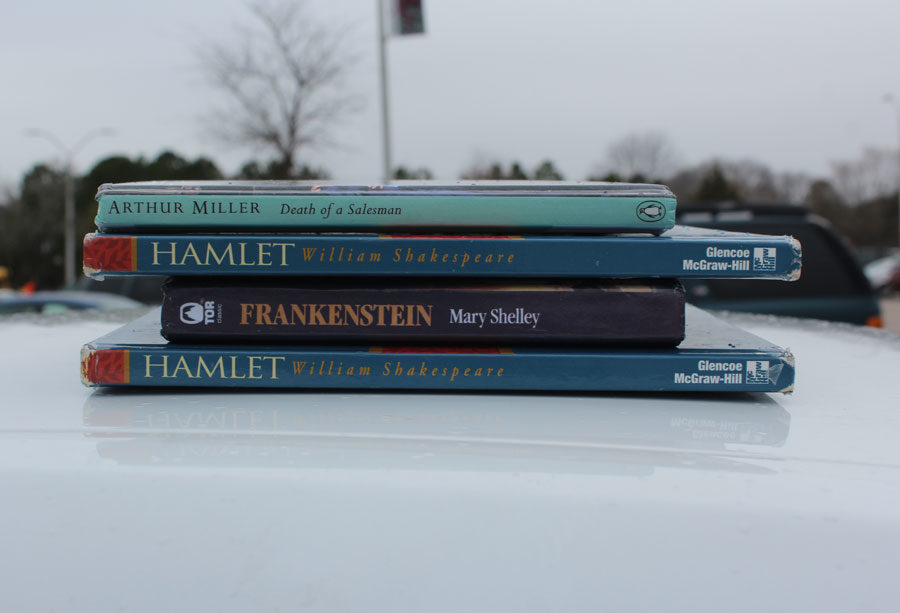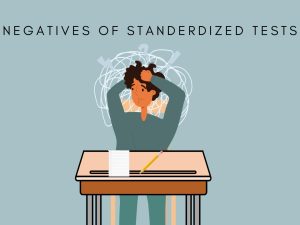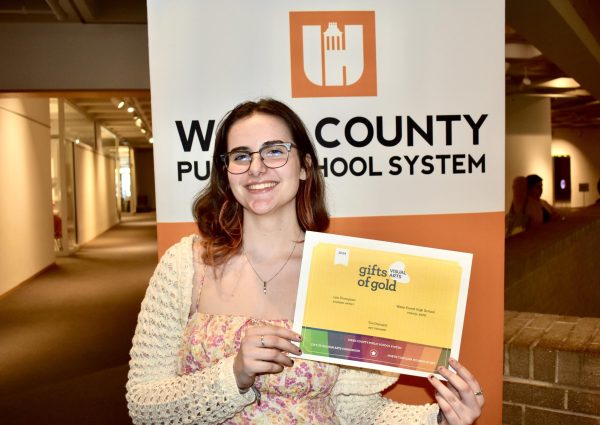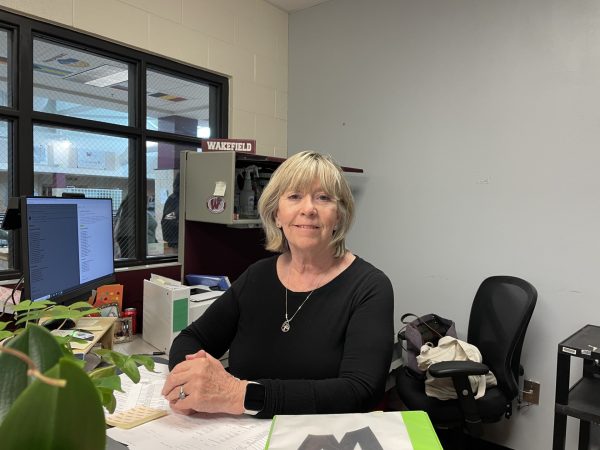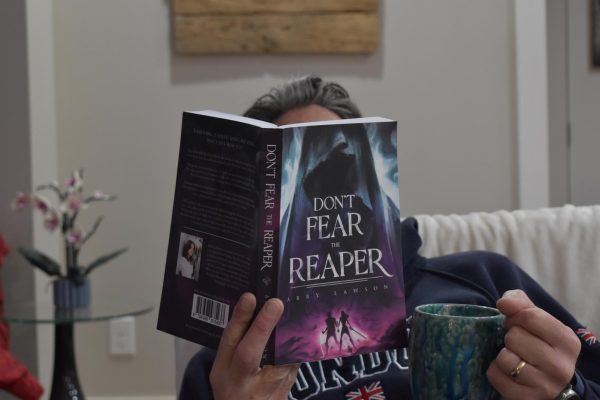Novels and the high school experience
Students and teachers reflect on the impact of classic novels in the English classroom
A handful of novels that many students will read in high school.
February 15, 2018
We are all familiar with the classic novels commonly read in English classes throughout the years of high school and here at Wakefield, the books we read are no exception. From ninth to twelfth grade, depending on what English level students take, there will be a basic assortment of classic novels required to be read as part of the curriculum. Over the course of time, emphasis on certain skills in English classes has changed and adapted to fit requirements of the new age. As the digital age progresses, school boards begin to push more for online literature that includes excerpts of novels rather than whole novels themselves. Some embrace this new form of reading, while others strongly oppose it.
Senior Kelsey Brown is one student who has always been a lover of English and has worked hard throughout her high school career, often taking AP level English classes. For her, these novels have been a great source of personal growth.
“ Junior year we read the book Into the Wild which I loved — Brown
Brown claims these literary classics have contributed to a better English vocabulary as well as improved her grammatical skills immensely.
“I found that reading Hamlet and Frankenstein taught me a lot about proper English and how one should write,” Brown said. “These books are challenging, but by rereading a lot you come to understand and enjoy the more challenging books.”
A popular book among Wakefield High School students is The Great Gatsby. This novel, written by F. Scott-Fitzgerald in the roaring 20s, features wealthy socialites that have compromising love interests. Senior James Mwaikambo and junior Ali Shariff both found this book riveting.
“I felt The Great Gatsby had a lot of twists and turns,” Mwaikambo said. “This novel, in particular, gave me new insight into the life of wealthy people, it’s kinda cool.”
Sharif had similar views to Mwaikambo on the novel.
“The novel has a really good storyline,” Sharif said. “I’m not the biggest fan of English, but I did enjoy reading The Great Gatsby in class.”
Among the novels that are beloved in English classes are the ones that are also disliked. Not all students share the same love of reading and, with technology being a growing epidemic, in the classroom many students are losing the attention span necessary to read an entire novel. Wakefield English teacher Cheryl Leshnock has seen this change in students over the years. Her many years of teaching have allowed her to see the progression and digression in the English curriculum.
“I think that eliminating novels from schools is a shortcut that feeds into the technology craze we currently have,” Leshnock said. “ Everything is so instantaneous at the click of a button. You need to be able to maintain the focus as an adolescent and you need time to work on something and progress with it. I think that develops your critical thinking skills instead of just little spurts here or there of reading.”
Another prominent English teacher, Sarah Dudley, also agrees novels will always have an important place within the English courses.
“I don’t think novels will ever go away, but I think the approach will adapt,” Dudley said. “There are movements to do excerpts instead of whole novels, but I think there will always be a place in the classrooms for those long works of literature.”
Teachers are constantly adapting and changing in order to better serve and teach their students. In this day and age, it is a hard battle to keep students’ attention.
“I’m trying to see if I can incorporate more student choice into my teaching to get students to read more of the book that they are interested in,” said Dudley. “It helps to engage students in what they want to read so that they can learn the important literary skills necessary, while still enjoying what they are doing.”



